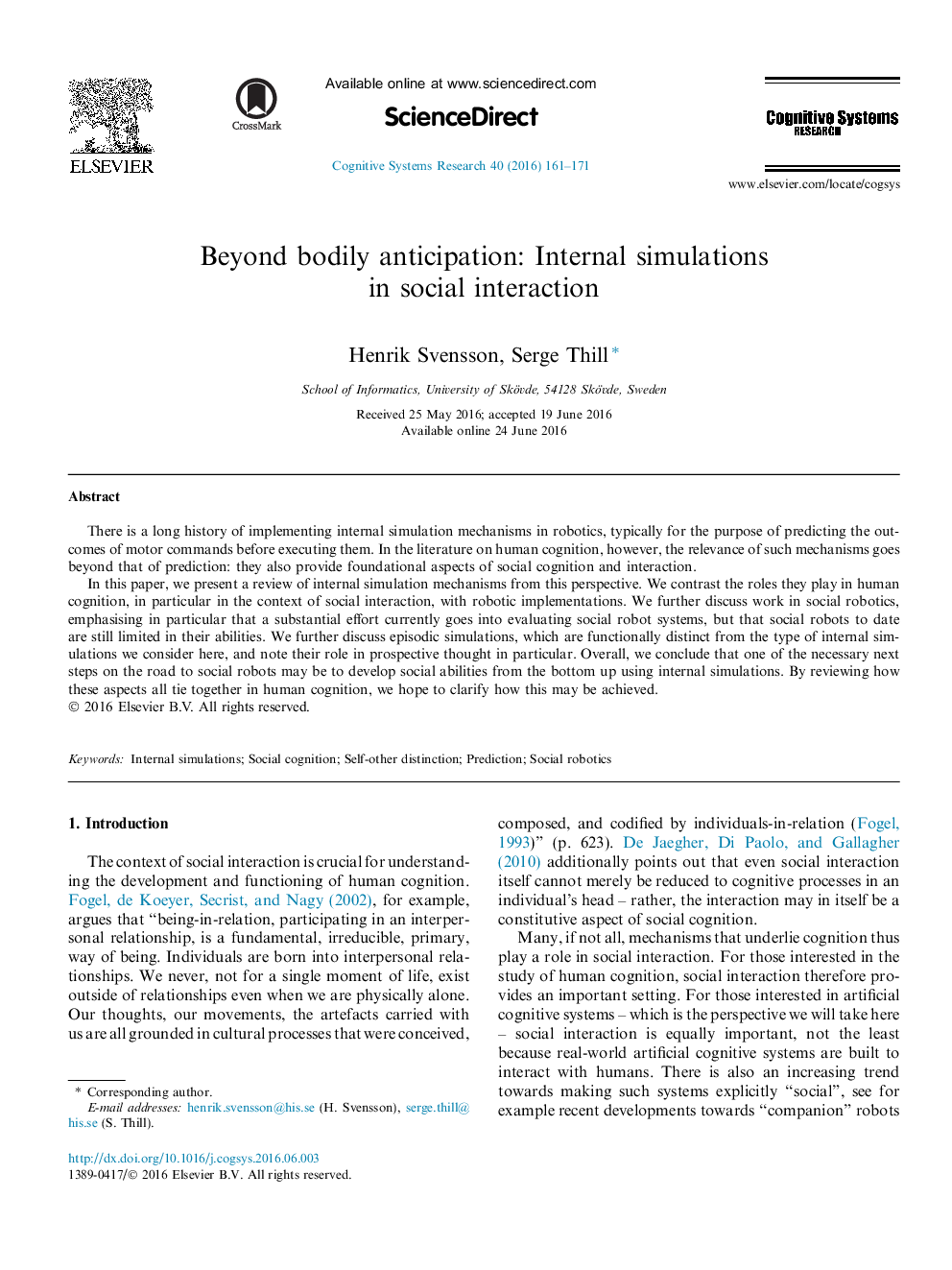| Article ID | Journal | Published Year | Pages | File Type |
|---|---|---|---|---|
| 378359 | Cognitive Systems Research | 2016 | 11 Pages |
There is a long history of implementing internal simulation mechanisms in robotics, typically for the purpose of predicting the outcomes of motor commands before executing them. In the literature on human cognition, however, the relevance of such mechanisms goes beyond that of prediction: they also provide foundational aspects of social cognition and interaction.In this paper, we present a review of internal simulation mechanisms from this perspective. We contrast the roles they play in human cognition, in particular in the context of social interaction, with robotic implementations. We further discuss work in social robotics, emphasising in particular that a substantial effort currently goes into evaluating social robot systems, but that social robots to date are still limited in their abilities. We further discuss episodic simulations, which are functionally distinct from the type of internal simulations we consider here, and note their role in prospective thought in particular. Overall, we conclude that one of the necessary next steps on the road to social robots may be to develop social abilities from the bottom up using internal simulations. By reviewing how these aspects all tie together in human cognition, we hope to clarify how this may be achieved.
